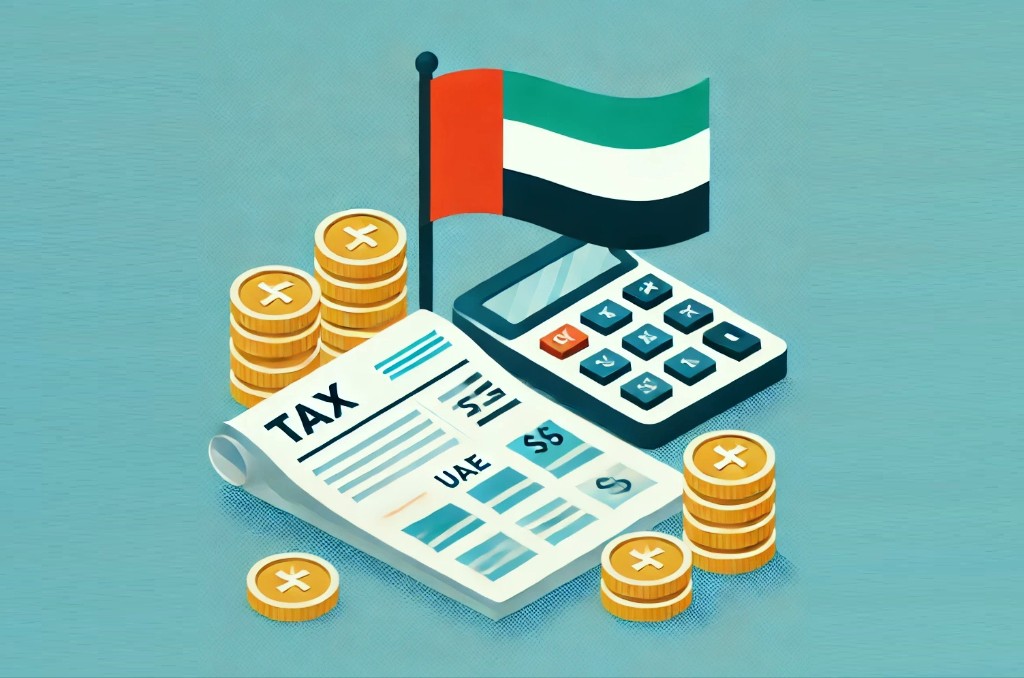I just got off a call with my UAE accountant that I trust because she basically leans on doing everything right. There’s a lot of accountants in the UAE that don’t really care, and they tell you, “Look, UAE is still tax-free, you can send all the money you want.”
“If you don’t want to send it to a company, just send it to your personal account, send cash, send crypto, whatever.” But in reality, the UAE is now adopting a European style of accounting.
Understanding UAE’s Evolving Tax Landscape
If you know anything about European style accounting, I’m currently in Poland and I’ve been studying European tax for a long time. Even though I’m not a tax expert or a professional, I study it for personal reasons because I want to live part-time in Poland, and I have a Polish company.
I studied the accounting system in all of Europe just to understand the laws and invoices because I’m not used to that, coming from the US and then transitioning over to Dubai back in 2020-2021 when nothing really mattered. Now, it matters.
Strict Regulations on Company Expenses and Taxation
Essentially, what you need to know is that the money that goes to your UAE company cannot simply be expensed out. You cannot just say, “Oh, let me buy a Lamborghini,” or “Let me send some money to this guy,” or “Let me take a bunch of money in cash and then send it somewhere else.”
The Federal Tax Authority (FTA) is going to expect invoices in and out. They’re going to expect proof of those transactions.
If you pass a threshold, they’re going to expect you to pay VAT as well. They’re going to expect you to pay the 9% corporate tax on over $100,000 in profit.
So, if you were thinking that the UAE is still tax-free like it was in 2020-2021, after 2023, things have changed. I made a lot of videos explaining that the UAE is changing, now we need to pay taxes.
Even free zone companies need to pay taxes. A lot of people are still telling you, “Oh, just go live tax-free in the UAE.”
“If you have a company in the UAE, yeah, that’s going to pay 9% tax, but just expense it all out as personal income.” For example, if your UAE company is making $5 million a year and you’re the owner, you might think, “Okay, I don’t want to pay the 9% tax on the $5 million, so I’m just going to pay myself a salary as personal income.”
Since personal income isn’t taxed in the UAE, you assume you won’t have to pay taxes on that. The problem is that now, the FTA sees this as money laundering, moving money from your company to your personal account to avoid taxes.
They will find you and charge you tax on that salary. If it’s a huge salary—say, your company makes $5 million in profit and you pay yourself $4 million as an “owner’s expense” or a “salary”—that’s unrealistic.
Someone in your position at another company would likely be making $75,000 to $100,000 a year, not $4 million. They will see that as illegal tax evasion and charge you the 9% tax.
They might also charge penalties or additional fees.
UAE’s Tax System Becoming More Stringent
What a lot of people aren’t talking about is that the FTA is a mess right now. The Federal Tax Authority currently doesn’t know how to handle all this documentation or the hundreds of thousands of companies incorporated in the UAE.
But over time, they will. In five years, for example, similar to what happens in Europe, they will start auditing.
People with Polish, Dutch, or German companies often receive inquiries from tax authorities years later asking for invoices from 2018, questioning transactions of $100,000 or even $1 million. The same thing is likely going to happen in the UAE.
The EU is pressuring them, the US is pressuring them, and all these Western countries are forcing the UAE to have a stricter accounting and invoicing system. UAE banking is already strict, but it’s going to become even stricter.
Monitoring money transfers, making sure cash and crypto aren’t being used for laundering, and ensuring compliance with AML regulations. You need to report your expenses, income, and revenue properly.
Get a good accountant—don’t just pick a random one. If you want our contact for an accountant, she is on the protective side.
She ensures long-term protection and compliance. If you prefer someone more flexible, feel free to find one, but be cautious with accountants who say, “Don’t worry about it.”
Many service providers and free zone company facilitators claim that you don’t need to worry about the 9% tax. However, after 2024, the 9% tax will be enforced, and false documentation will be considered tax fraud.
Some people think they can avoid taxes by not opening a company and instead earning all income under their personal name. The issue is that a person can also be considered a corporate entity if their income is high enough.
If you get a UAE Golden Visa by buying property and then start sending yourself $1 million a month to your personal account (since there’s no personal income tax in the UAE), they will still consider you a company. That means you will need to pay the 9% tax, even as an individual.
The authorities will classify you as a business because you are earning income, but structuring it under your personal name to avoid paying corporate tax.
Exceptions and Final Thoughts
The exceptions to this are capital gains, crypto trading, and long-term investments, those won’t be taxed. If you make money in crypto, Bitcoin, real estate, or flipping properties, those earnings are considered capital gains and not business revenue, so they won’t be taxed.
For example, if your company makes $10 million a year, pays 10% tax, is VAT-registered, and corporate tax-registered, and you pay yourself a salary of $150,000–$200,000 a year plus bonuses, that won’t be taxed because it’s personal income. If you sell the company, you also won’t pay taxes on that because it qualifies as capital gains.
However, companies now have strict accounting rules that align with European standards. You need invoices going in and out, a reliable accountant, and detailed financial records.
Over time, authorities will begin auditing companies with high revenue. The UAE is no longer a tax-free haven, except for crypto and capital gains earnings.
For US citizens, the situation is even more complex. If you’re moving to the UAE, keep proper records and do your accounting correctly.
If you think you can just expense everything on luxury goods like villas, Maybachs, or McLarens, you need to prove they are for business use. If they are personal expenses, they will be taxed at 9% because they are considered company profits being used personally.
Don’t assume the UAE tax system is simple. If you’re generating revenue from a business, course sales, services, or product sales, you must follow Western-style accounting.
If you’re considering moving to Dubai, make sure to avoid common mistakes. Check out the video linked here to learn more about how to structure your finances properly and stay compliant.


